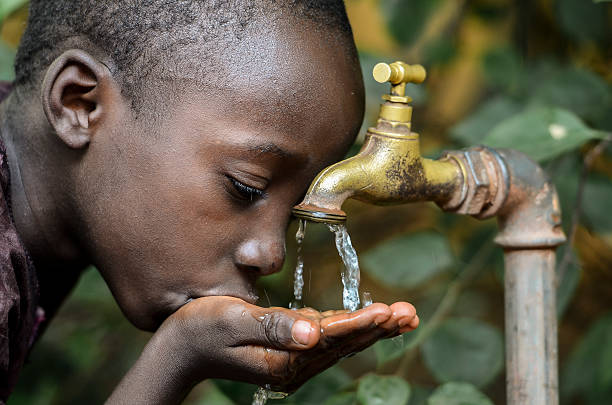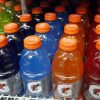- Empty cart.
- Continue Shopping
The Importance of Hydration for Children

Proper hydration is essential for people of all ages, but it is especially crucial for children as their bodies are still growing and developing. Water is a fundamental nutrient that plays a vital role in maintaining various bodily functions.
Why is Hydration Important for Children?
1. Growth and Development
Water is essential for the growth and development of children. It is involved in numerous biochemical processes that support the formation of new tissues, cells, and organs. Proper hydration is necessary for children to reach their full physical and cognitive potential.
2. Temperature Regulation
Children are more susceptible to overheating and heat-related illnesses than adults. Sweating is the body’s natural cooling mechanism, and it requires an adequate intake of fluids. Staying hydrated helps regulate body temperature and prevents heat exhaustion or heatstroke, especially during physical activities.
3. Cognitive Function
Dehydration can impair cognitive function, including memory, attention, and problem-solving abilities. Children need to stay hydrated to perform well in school and other intellectual pursuits.
4. Physical Activity
Children are typically more active than adults, and physical activity increases their fluid requirements. Proper hydration supports muscle function, joint lubrication, and overall physical performance.
5. Digestion and Nutrient Absorption
Water plays a crucial role in the digestion and absorption of nutrients from food. Without adequate hydration, children may experience digestive issues and nutrient deficiencies.
6. Immune Function
A well-hydrated body is better equipped to fight off infections and illnesses. Water helps transport immune cells and antibodies to the areas where they are needed most.
Hydration Needs for Children
Children have unique hydration needs based on factors such as age, weight, activity level, and climate. Here are some general guidelines:
1. Infants (0-6 months):
- Babies who are exclusively breastfed receive most of their hydration from breast milk.
- Formula-fed infants may require additional water in hot weather, but always consult with a pediatrician for guidance.
2. Infants (6-12 months):
- Introduce small sips of water when your baby starts eating solid foods.
- Breast milk or formula should still be the primary source of nutrition.
3. Toddlers (1-3 years):
- Toddlers should drink about 4-6 cups (32-48 ounces) of fluids per day.
- Water, milk, and diluted fruit juices are suitable options.
4. Preschoolers (4-8 years):
- Preschoolers should aim for 5-7 cups (40-56 ounces) of fluids daily.
- Encourage water as the main beverage, and limit sugary drinks like soda and fruit punch.
5. School-Age Children (9-13 years):
- School-age children need about 7-9 cups (56-72 ounces) of fluids daily.
- Water should be the primary beverage, and they can also consume milk, 100% fruit juice in moderation, and unsweetened herbal teas.
6. Adolescents (14-18 years):
- Adolescents should aim for 8-11 cups (64-88 ounces) of fluids daily.
- Encourage water consumption, as well as low-fat milk, and limit sugary beverages.
Signs of Dehydration in Children
It’s crucial for parents and caregivers to be aware of the signs of dehydration in children, as young children may not always be able to communicate their needs effectively. Common signs of dehydration in children include:
- Dry or sticky mouth and tongue
- Dark yellow urine or infrequent urination
- Sunken eyes
- Lack of tears when crying
- Irritability or fussiness
- Dry skin or cool extremities
- Fatigue or lethargy
- Dizziness or lightheadedness
- Sunken soft spot on the head (fontanelle) in infants
Tips for Ensuring Proper Hydration
To ensure that children stay adequately hydrated, consider implementing the following tips:
- Lead by Example: Demonstrate the importance of staying hydrated by drinking water regularly yourself.
- Provide Easy Access: Make water readily available throughout the day. Consider reusable water bottles for school and activities.
- Set Reminders: Encourage children to take regular water breaks, especially during physical activities or hot weather.
- Flavor Water Naturally: If children find plain water unappealing, add slices of fruit (e.g., lemon, lime, or berries) for natural flavor.
- Limit Sugary Drinks: Minimize the consumption of sugary drinks, including soda, energy drinks, and excessive fruit juices.
- Monitor Activity Levels: Adjust fluid intake based on your child’s level of physical activity and exposure to heat.
- Offer Water-Rich Foods: Incorporate foods with high water content, such as watermelon, cucumbers, and oranges, into their diet.
- Educate on Hydration: Teach children about the importance of drinking water and recognizing signs of dehydration.
- Consult a Pediatrician: If you have concerns about your child’s hydration or suspect they may be dehydrated, consult with a pediatrician for guidance and evaluation.
In Conclusion, Proper hydration is vital for children’s growth, development, and overall well-being. By understanding their unique hydration needs and encouraging healthy drinking habits, parents and caregivers can help children stay hydrated and set the foundation for a lifetime of good health. Ensuring that children have access to clean, safe water and promoting a balanced approach to hydration can make a significant difference in their physical and mental health.








